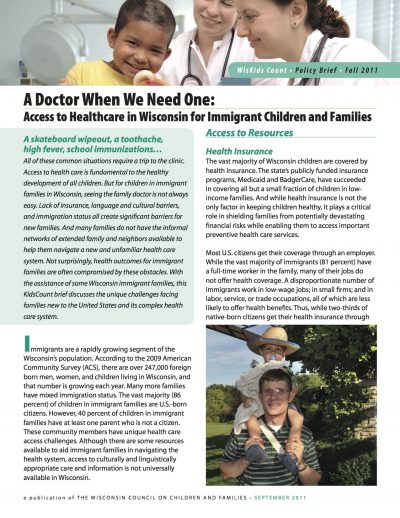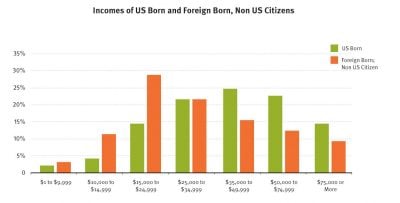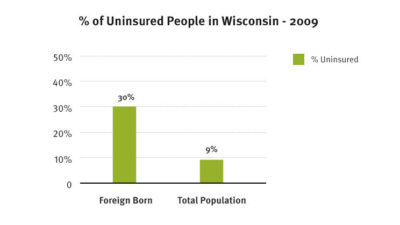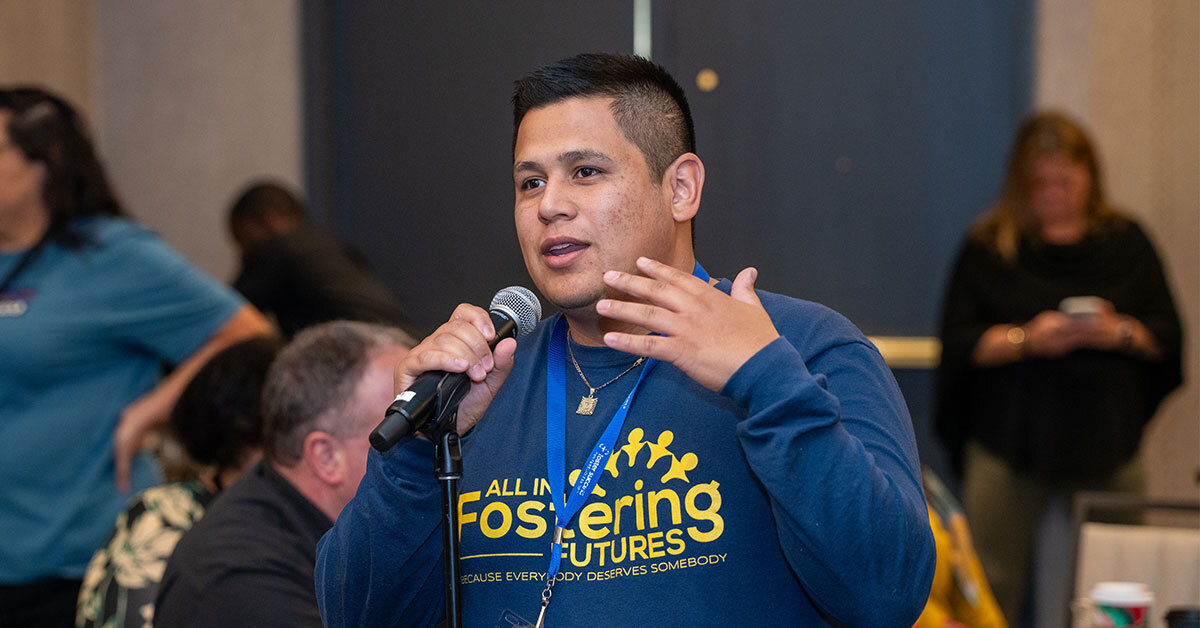Policymaker's Playbook
Strategies for enhancing medical access among immigrant families include: 1) boosting funding for health care advocates that serve immigrant families; 2) working with immigrant communities to address cultural divides; and 3) expanding professional interpreter services.









